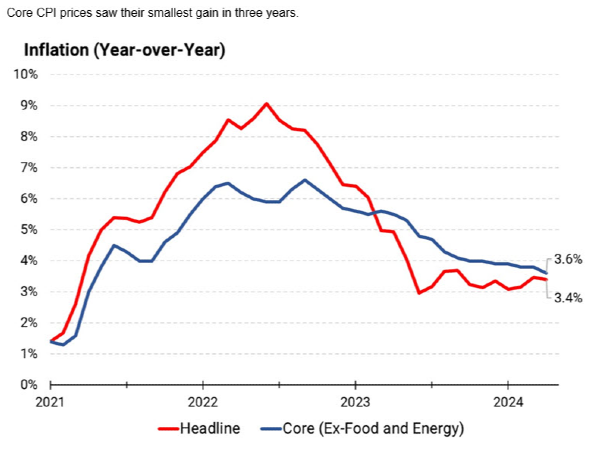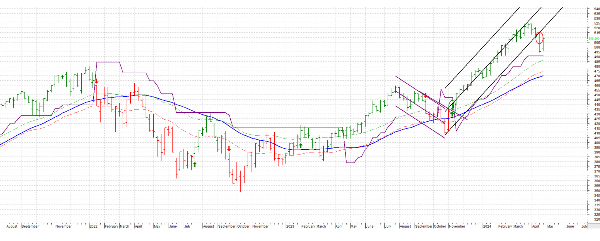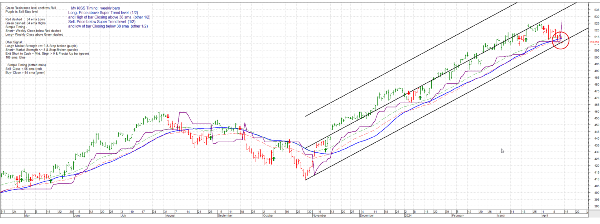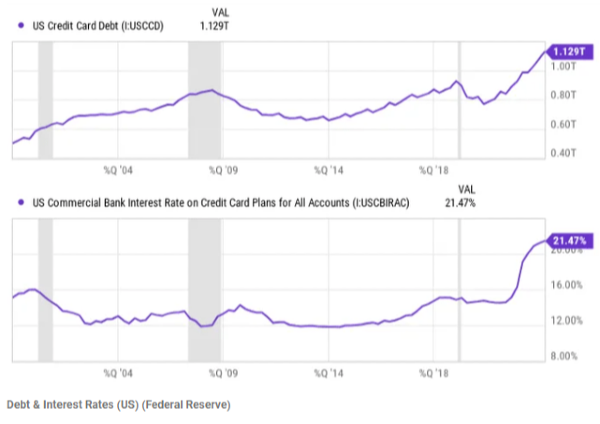Expertise provided by Darius Smith
Reviewed by Chaster Johnson
Starting to invest in stocks is a money move that can impact your financial well-being. It's especially important, for beginner, those with funds to grasp the right timing and approach to kick off their investment journey. This detailed handbook delves into determining the age to begin investing in stocks assisting beginners in selecting investments understanding the ins and outs of the stock market and identifying top stock options, for novices.
What Age Should You Start Investing in Stocks?
The Best Time to Start Investing: As Early as Possible
Financial experts generally agree that it's wise to begin investing. While adults are typically required to oversee investments, for minors due to reasons the concept of investing can be introduced to kids once they grasp financial concepts, which could be around third grade.
Getting a head start in investing allows individuals to take advantage of the magic of compound interest famously described by Albert Einstein as the " wonder of the world." With compound interest, investors can earn returns not on their investment but also on the accumulated interest, over time. The sooner one starts investing the opportunity their money has to grow.
Investing for Minors: Custodial Accounts
Parents or guardians have the option to set up accounts like Uniform Transfers to Minors Act (UTMA) or Uniform Gifts to Minors Act (UGMA) accounts for minors. These accounts enable adults to make investments, for their children until they come of age at 18 or 21 years old depending on the state.
Starting as a Teen or Young Adult
If you didn't begin investing when you were young the next good opportunity is, in your years or early adulthood. At that point, you probably have a grasp of ideas. Might have some extra money from part-time work or allowances.
College Students and Young Professionals
When college students and young professionals establish an income it's important for them to focus on investing. This phase holds significance as initiating investments sooner allows one to benefit more from the impact of compound interest. Even minor and regular investments have the potential to grow substantially in the run.
How to Choose Which Investments to Make?
Assess Your Financial Goals
Before delving into the world of stock trading it's important to evaluate your aspirations. Are you setting aside funds for a future plan, like a trip? Are you looking to grow your wealth for distant goals, like retirement? Your objectives will shape the way you approach investing. How much risk you're willing to take on?
Understand Your Risk Tolerance
Risk tolerance pertains to how you're willing and able to risk losing in your investments for the chance of greater returns. It is shaped by factors, like your status, investment objectives, and individual traits. Typically younger investors exhibit a risk tolerance due to their capacity to bounce back, from market slumps over time.
Diversify Your Portfolio
Investing in a mix of types of assets such, as stocks, bonds, and mutual funds is a way to reduce risk. By spreading your investments across categories, you can lessen the effects of underperformance in one specific investment, on your entire portfolio.
Start with Index Funds and ETFs
If you're new, to investing consider starting with index funds and exchange-traded funds (ETFs). These types of funds gather funds from a variety of investors to buy a range of stocks. Index funds and ETFs are usually inexpensive. Offer exposure, to the market, which can help lower the risks linked with choosing individual stocks.
Research Individual Stocks
When you feel more self-assured and knowledgeable you might consider delving into stocks. Doing research is key. Seek out firms, with fundamentals like revenue growth, profitability and a sound business structure. Keep an eye, on market trends. Assess the company’s strengths.
How the Stock Market Works for Beginners
Understanding Stocks
Investing in stocks means owning a piece of a company. When you purchase a stock you become a shareholder, in the company. Can receive a share of its earnings through dividends. Stock values change depending on how the company is doing how investors feel about it and overall economic conditions.
Stock Exchanges
Shares are sold on stock markets, like the New York Stock Exchange (NYSE) and Nasdaq. These platforms enable transactions between buyers and sellers. In the stock market prices fluctuate based on supply and demand. They go up when there are buyers then sellers and down when there are sellers, then buyers.
How to Buy Stocks
To invest in stocks you'll first have to set up a brokerage account. These firms serve as the go-between, for individuals and the stock market. Known online brokerage services like TD Ameritrade and Robinhood are worth exploring. When picking a brokerage it's wise to factor in costs research resources, on offer, and overall user-friendliness.
Placing an Order
Once you have a brokerage account, you can place orders to buy or sell stocks. There are several types of orders, including:
- Market Order: Buys or sells the stock immediately at the current market price.
- Limit Order: Buys or sells the stock at a specified price or better.
- Stop Order: Buys or sells the stock once it reaches a specified price, known as the stop price.
Monitoring Your Investments
Once you buy stocks make sure to stay updated on how they're doing. Keep an eye, on how the company is performing, any shifts, in the industry, and the general market status. But remember not to check your investments often; short-term changes can sometimes be misleading and cause unnecessary worry.
Best Stocks for Beginners

Blue-Chip Stocks
Blue chip stocks refer to shares of established and reputable companies known for their performance. These firms typically boast financials, a reliable business structure, and a notable market position. Notable examples include Apple, Microsoft, and Johnson & Johnson. Blue chip stocks are commonly viewed as investment options, especially suitable, for those, to investing.
Dividend Stocks
Companies that offer dividend stocks are those that frequently share a part of their earnings, with their shareholders. These types of stocks can be appealing to investors looking for a source of income and stability. Known companies such, as Procter & Gamble Coca-Cola, and Verizon are recognized for their dividend distributions.
Growth Stocks
Companies that focus on growth stocks are those anticipated to expand at a faster pace, than market players. Of distributing profits as dividends these companies usually reinvest them to grow their operations. Although investing in growth stocks can lead to returns they also involve risk. Some known examples are Amazon, Tesla, and Netflix.
Value Stocks
Stocks with value, are those of businesses that seem to be priced lower than their worth often indicated by factors like price, to-earnings (P/E) ratios. The approach of value investing focuses on pinpointing stocks that are undervalued compared to their value. While this method demands analysis it can result in profits once the market acknowledges the genuine value of the company. Notable instances encompass Berkshire Hathaway and JPMorgan Chase.
Sector-Specific Stocks
Focusing on investing in sectors enables you to concentrate on industries that you think will thrive in the future. Industries, like technology, healthcare, and renewable energy have exhibited growth prospects. Nonetheless delving into sector investments demands awareness of industry trends and associated risks.
The Best Investments for Students

Investing with Limited Funds
Many students may not have a lot of money to invest. That shouldn't stop them from getting into the stock market. Several trading platforms allow you to buy fractions of stocks with a few dollars. Moreover, some brokers offer trading making it simpler to invest sums without worrying about hefty fees.
StockBossUp.com: A Resource for Student Investors
If students are seeking stock suggestions and tips, on investing they can check out StockBossUp.com for beginner stock recommendations. These pages showcase stock choices from students making it easier to relate and get started. Additionally, the website provides materials to assist students in grasping the fundamentals of investing and establishing a financial footing for themselves.
Conclusion
Getting into the stock market can be a strategy, for growing your wealth in the run, and it's ideal to kick off this journey sooner rather than later. Whether you're a student with finances or someone new to the workforce mastering the fundamentals of investing selecting investment opportunities and utilizing platforms like StockBossUp.com can pave the way, for financial prosperity.
When you evaluate your objectives grasp your comfort level, and with risk and spread out your investments you can make choices, about where to put your money for the long haul. Beginning with index funds, ETFs and reputable stocks lays the groundwork while delving into stock research and sector-focused investments can boost your financial prosperity.
For more information watch this video:
https://youtu.be/0k_FZJhszPM






















Expertise provided by Darius Smith
Reviewed by Chaster Johnson
Starting to invest in stocks is a money move that can impact your financial well-being. It's especially important, for beginner, those with funds to grasp the right timing and approach to kick off their investment journey. This detailed handbook delves into determining the age to begin investing in stocks assisting beginners in selecting investments understanding the ins and outs of the stock market and identifying top stock options, for novices.
What Age Should You Start Investing in Stocks?
The Best Time to Start Investing: As Early as Possible
Financial experts generally agree that it's wise to begin investing. While adults are typically required to oversee investments, for minors due to reasons the concept of investing can be introduced to kids once they grasp financial concepts, which could be around third grade.
Getting a head start in investing allows individuals to take advantage of the magic of compound interest famously described by Albert Einstein as the " wonder of the world." With compound interest, investors can earn returns not on their investment but also on the accumulated interest, over time. The sooner one starts investing the opportunity their money has to grow.
Investing for Minors: Custodial Accounts
Parents or guardians have the option to set up accounts like Uniform Transfers to Minors Act (UTMA) or Uniform Gifts to Minors Act (UGMA) accounts for minors. These accounts enable adults to make investments, for their children until they come of age at 18 or 21 years old depending on the state.
Starting as a Teen or Young Adult
If you didn't begin investing when you were young the next good opportunity is, in your years or early adulthood. At that point, you probably have a grasp of ideas. Might have some extra money from part-time work or allowances.
College Students and Young Professionals
When college students and young professionals establish an income it's important for them to focus on investing. This phase holds significance as initiating investments sooner allows one to benefit more from the impact of compound interest. Even minor and regular investments have the potential to grow substantially in the run.
How to Choose Which Investments to Make?
Assess Your Financial Goals
Before delving into the world of stock trading it's important to evaluate your aspirations. Are you setting aside funds for a future plan, like a trip? Are you looking to grow your wealth for distant goals, like retirement? Your objectives will shape the way you approach investing. How much risk you're willing to take on?
Understand Your Risk Tolerance
Risk tolerance pertains to how you're willing and able to risk losing in your investments for the chance of greater returns. It is shaped by factors, like your status, investment objectives, and individual traits. Typically younger investors exhibit a risk tolerance due to their capacity to bounce back, from market slumps over time.
Diversify Your Portfolio
Investing in a mix of types of assets such, as stocks, bonds, and mutual funds is a way to reduce risk. By spreading your investments across categories, you can lessen the effects of underperformance in one specific investment, on your entire portfolio.
Start with Index Funds and ETFs
If you're new, to investing consider starting with index funds and exchange-traded funds (ETFs). These types of funds gather funds from a variety of investors to buy a range of stocks. Index funds and ETFs are usually inexpensive. Offer exposure, to the market, which can help lower the risks linked with choosing individual stocks.
Research Individual Stocks
When you feel more self-assured and knowledgeable you might consider delving into stocks. Doing research is key. Seek out firms, with fundamentals like revenue growth, profitability and a sound business structure. Keep an eye, on market trends. Assess the company’s strengths.
How the Stock Market Works for Beginners
Understanding Stocks
Investing in stocks means owning a piece of a company. When you purchase a stock you become a shareholder, in the company. Can receive a share of its earnings through dividends. Stock values change depending on how the company is doing how investors feel about it and overall economic conditions.
Stock Exchanges
Shares are sold on stock markets, like the New York Stock Exchange (NYSE) and Nasdaq. These platforms enable transactions between buyers and sellers. In the stock market prices fluctuate based on supply and demand. They go up when there are buyers then sellers and down when there are sellers, then buyers.
How to Buy Stocks
To invest in stocks you'll first have to set up a brokerage account. These firms serve as the go-between, for individuals and the stock market. Known online brokerage services like TD Ameritrade and Robinhood are worth exploring. When picking a brokerage it's wise to factor in costs research resources, on offer, and overall user-friendliness.
Placing an Order
Once you have a brokerage account, you can place orders to buy or sell stocks. There are several types of orders, including:
Monitoring Your Investments
Once you buy stocks make sure to stay updated on how they're doing. Keep an eye, on how the company is performing, any shifts, in the industry, and the general market status. But remember not to check your investments often; short-term changes can sometimes be misleading and cause unnecessary worry.
Best Stocks for Beginners
Blue-Chip Stocks
Blue chip stocks refer to shares of established and reputable companies known for their performance. These firms typically boast financials, a reliable business structure, and a notable market position. Notable examples include Apple, Microsoft, and Johnson & Johnson. Blue chip stocks are commonly viewed as investment options, especially suitable, for those, to investing.
Dividend Stocks
Companies that offer dividend stocks are those that frequently share a part of their earnings, with their shareholders. These types of stocks can be appealing to investors looking for a source of income and stability. Known companies such, as Procter & Gamble Coca-Cola, and Verizon are recognized for their dividend distributions.
Growth Stocks
Companies that focus on growth stocks are those anticipated to expand at a faster pace, than market players. Of distributing profits as dividends these companies usually reinvest them to grow their operations. Although investing in growth stocks can lead to returns they also involve risk. Some known examples are Amazon, Tesla, and Netflix.
Value Stocks
Stocks with value, are those of businesses that seem to be priced lower than their worth often indicated by factors like price, to-earnings (P/E) ratios. The approach of value investing focuses on pinpointing stocks that are undervalued compared to their value. While this method demands analysis it can result in profits once the market acknowledges the genuine value of the company. Notable instances encompass Berkshire Hathaway and JPMorgan Chase.
Sector-Specific Stocks
Focusing on investing in sectors enables you to concentrate on industries that you think will thrive in the future. Industries, like technology, healthcare, and renewable energy have exhibited growth prospects. Nonetheless delving into sector investments demands awareness of industry trends and associated risks.
The Best Investments for Students
Investing with Limited Funds
Many students may not have a lot of money to invest. That shouldn't stop them from getting into the stock market. Several trading platforms allow you to buy fractions of stocks with a few dollars. Moreover, some brokers offer trading making it simpler to invest sums without worrying about hefty fees.
StockBossUp.com: A Resource for Student Investors
If students are seeking stock suggestions and tips, on investing they can check out StockBossUp.com for beginner stock recommendations. These pages showcase stock choices from students making it easier to relate and get started. Additionally, the website provides materials to assist students in grasping the fundamentals of investing and establishing a financial footing for themselves.
Conclusion
Getting into the stock market can be a strategy, for growing your wealth in the run, and it's ideal to kick off this journey sooner rather than later. Whether you're a student with finances or someone new to the workforce mastering the fundamentals of investing selecting investment opportunities and utilizing platforms like StockBossUp.com can pave the way, for financial prosperity.
When you evaluate your objectives grasp your comfort level, and with risk and spread out your investments you can make choices, about where to put your money for the long haul. Beginning with index funds, ETFs and reputable stocks lays the groundwork while delving into stock research and sector-focused investments can boost your financial prosperity.
For more information watch this video:
https://youtu.be/0k_FZJhszPM